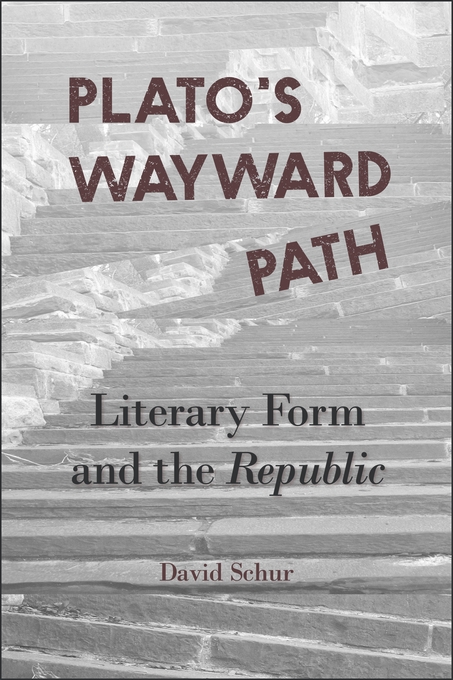In his new book, Plato’s Wandering Path: Literary Form and the Republic, Professor David Schur of Brooklyn College delivers insights 15 years in the making. Focusing on The Republic, Schur argues that the philosopher’s digressive style takes the reader on a deliberate “journey of perpetual approach” toward the sublime. In Plato’s literary structure Schur finds a perfect artistic expression of his rigorous thought.
Professor Schur kindly answered a few of our questions:
Q. Are there other ancient philosophers or historians whose work might be illuminated by your literary approach, finding “thought and language emerging together,” or does Plato stand alone in this regard?
A. I do think that Plato’s different dialogues typically grapple with ideas in unexpected and elaborate ways that invite close attention to specific features of language. As it happens, though, this project helped me to solidify some ideas about reading that I would now like to pursue further by focusing on authors who are universally acknowledged as literary. I’m currently working on Sophocles, for instance.
Q. How does this book relate to your previous one on Heraclitus and Kafka?
A. Both books reflect a preoccupation with metaphors and method, but I only recently realized that I’m almost always focusing on overlooked metaphors in canonical texts. I find it thrilling to find a metaphor sleeping and hidden for all to see —and then I try to wake it up!
 Q. Your cover image is beautiful and a perfect expression of your central point. Is there a story about how you found it?
Q. Your cover image is beautiful and a perfect expression of your central point. Is there a story about how you found it?
A. I’m very glad you see it that way. I wanted to connect my current location (Brooklyn) with the increasingly abstract paths that wend their way through Plato’s Republic. The image was made from photographs I took of a stairway in a nearby park. From some prospects, the stairs seem to go on forever. In the image, some of the steps are not only tilted but also upside down. And then the designer Joni Godlove brought the idea home by tilting the title at increasingly dramatic angles.
The full text of Plato’s Wayward Path can be accessed on the CHS website: https://nrs.harvard.edu/urn-3:hul.ebook:CHS_SchurD.Platos_Wayward_Path.2015. Readers may also be interested in Andrea Capra’s Plato’s Four Muses: The Phaedrus and the Poetics of Philosophy.
